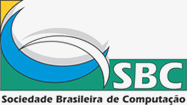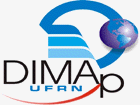SBES SPECIAL TRACK: "Grand Challenges in Software/System Engineering"
XXVI Brazilian Symposium on Software Engineering - SBES'2012
September 23-28, 2012 - Natal-RN, Brazil
IMPORTANT DATES
Abstract Submission: June 28, 2012 (at 23:55 – Brazilian Official Time) – extended deadline
Paper Submission: June 30, 2012 (at 23:55 – Brazilian Official Time) – extended deadline
Author Notification: July 20, 2012
Camera-ready Version due: August 8, 2012
Throughout its history, SBES, the most important scientific event in SE in Brazil, has contributed to the establishment and growth of this area in Brazil, leading to contributions which influenced the current state of art and practice of Software Engineering areas in Brazil, South America and world wide. In 2006, SBC promoted a workshop aiming at identifying the Grand Challenges in Computer Science considering a 10 year period, resulting in a list of five challenges as follows:
Management of information over massive volumes of distributed multimedia data Computational modeling of complex systems: artificial, natural, socio-cultural, and human-nature interactions Impacts on Computer Science of the transition from silicon to new technologies Participative and universal access to knowledge for the Brazilian citizen Technological development of quality: dependable, scalable and ubiquitous systems.
Many of these challenges, if not all of them, are directly related with Software/System Engineering since they are extremely dependent on software systems. In this sense, in this edition of SBES, conceived this Special Track, looking at high-quality submissions discussing the Grand Challenges in Software/System Engineering. There will be a dynamic on presenting the accepted articles on September, 23th (Sunday) from 08:00 until 19:00 with the participation of ll authors during the entire event, aiming at elaborating on a document to discuss the Grand Challenges in Software/System Engineering, the related benefits, proposed actions, human resources aspects and infra-structure needs. Certainly, such document would provide directions for demands to the funding agencies and to the stakeholders. The synthesis of this work will be present on a session during the SBES.
As pointed out in the document produced by SBC (www.sbc.org.br), submissions on grand challenges are not the same as traditional scientific submissions. They must focus on the discussion of ongoing research, its goal is to define research issues that will be important in the long run for Software/System Engineering. They should foster collective work towards identifying and characterizing grand research problems in the Software/System Engineering area.
Grand Challenges require multiple views and long-term research endeavors in order to be attacked. They must aim at goals that cannot be reached by short-term planning and incremental projects. The identification of grand research challenges contributes to formulating the so-called High-Risk-High-Payoff projects, which have the potential to significantly advance the Software Engineering, with valuable social and technological applications. Some characteristics of Grand Research Challenges include:
- They must be directed towards significant advances in Software Engineering, rather than on incremental contributions based on existing results;
- They must present a vision that goes beyond that of a typical grant application for a research project;
- They must be subject to clear and objective evaluation criteria;
- They should be decomposable and amenable to incremental diagnosis, so as to allow changes within the process to achieve them;
- They must be ambitious and visionary, but at the same time feasible within a predefined time frame, for instance, 10 years;
- They must be attractive and challenging for scientists, and motivate society as a whole;
- They address problems that are multidisciplinary both in nature and solution; and
- The topics that motivate them emerge from a consensus of the scientific community, and serve as a long-term scenario for all researchers, regardless of financing policies or issues of the moment.
In this sense, some examples of topics to be addressed are (but not limited to):
- visionary research topics for contemporary SE, e.g. definition of mechanisms for the geographically distributed development of next-generation distributed software/system;
- impacts of relationship between industry and academy on software/system development and human resources qualification;
- impacts of Brazilian Software/System Engineering research internationalization: gaps and directions for the future;
- impacts on Software/System Engineering of the transition from silicon to new technologies;
- impacts of Open Source and Open Didactic Material on Software/System Engineering;
- impacts of Technological high quality development demands on Software/System Engineering.
Submitted papers in this track will be based on its originality, relevance to the track theme, and clarity of presentation. We are seeking submissions of 5-pages articles, considering the same submission template of the main track. Only submissions via JEMS System are acceptable (https://submissoes.sbc.org.br/home.cgi?c=1598).
ORGANIZATION AND COORDINATION
SBES Steering Committee
Alessandro Garcia, PUC-Rio
Auri Vincenzi, UFG
Marcio Delamaro, USP
Paulo Borba, UFPE
Thais Batista, UFRN
PROGRAM COMMITTEE
Program committee chairs:
Auri Marcelo Rizzo Vincenzi, Universidade Federal de Goiás, Brazil
José Carlos Maldonado, ICMC - Universidade de São Paulo, Brazil
Committee members under definition



